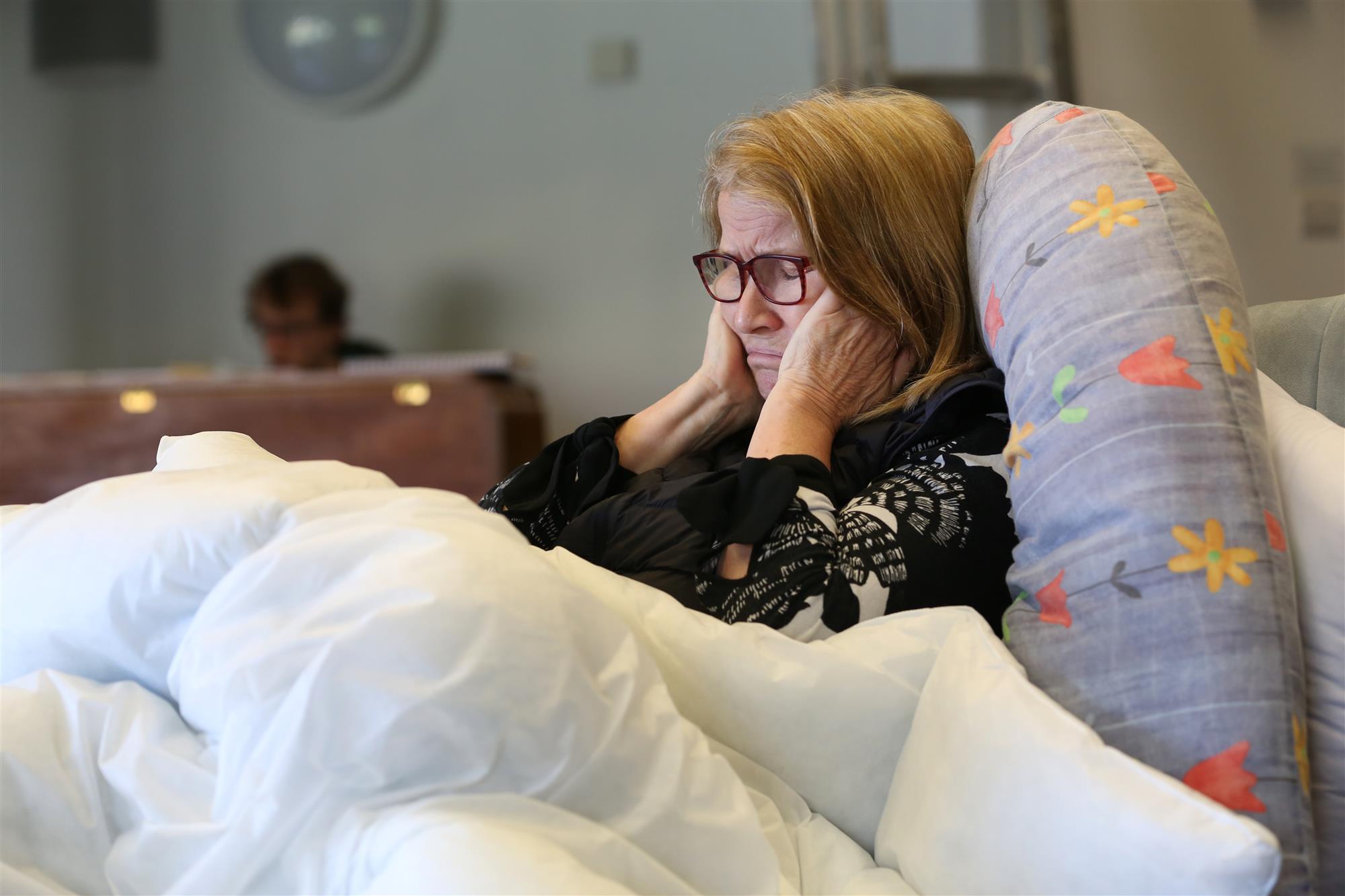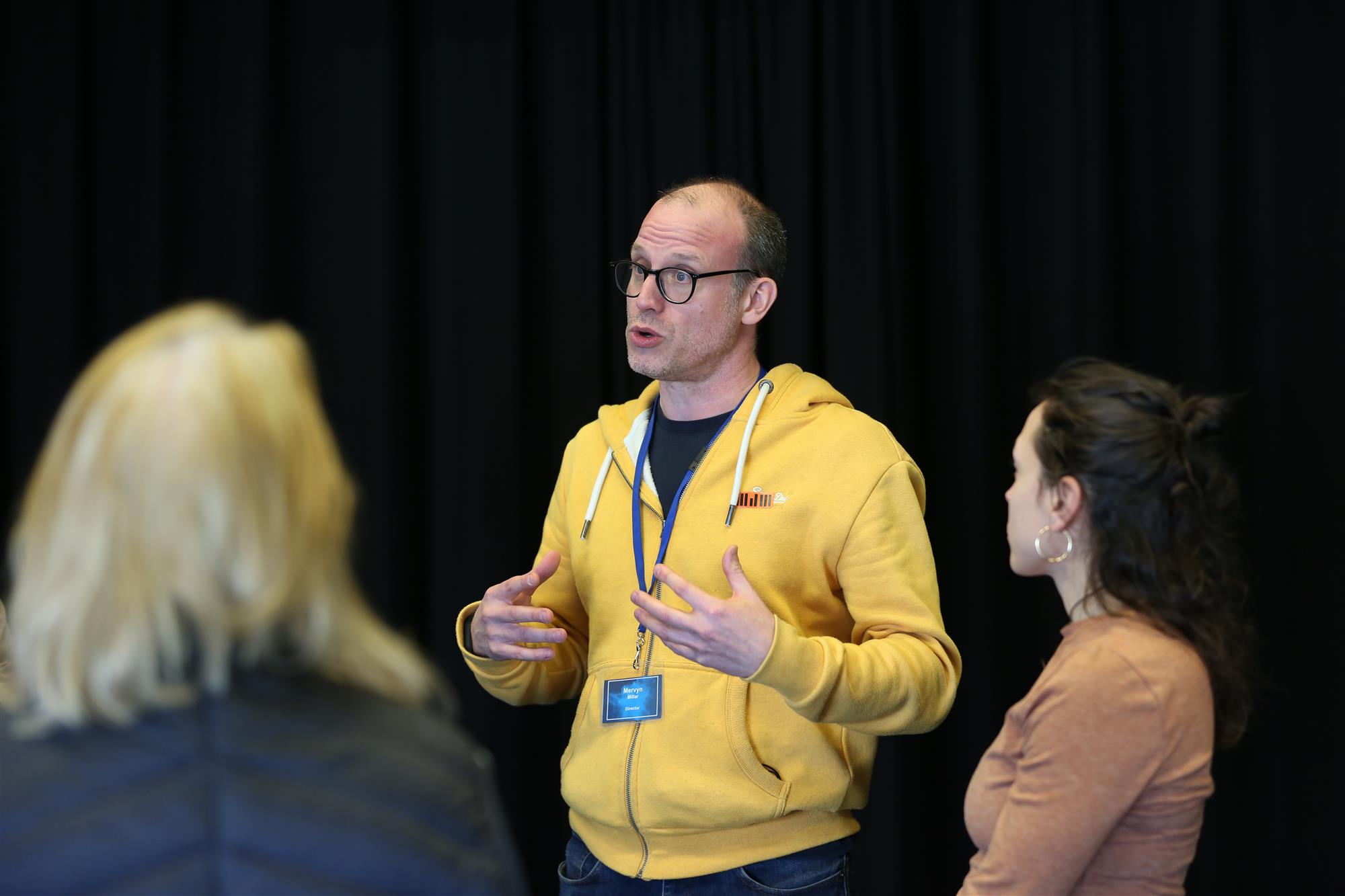The world premiere of Winnipeg, Manitoba-born, now UK-based composer/pianist Douglas Finch’s Take Care put a spotlight on the hidden world of dementia care, as witnessed through the prismatic lens of real-life caregivers. The 90-minute chamber opera presented April 2nd and 3rd at the University of Nottingham’s Lakeside Arts Centre follows the journey of Katie (performed by Nottingham-born soprano Donna Bateman), a “home-carer” in her 30s, and her clients as they grapple with the challenges of memory loss. “I’m hoping audience members will feel a sense of tenderness in this opera, and an empathy for these characters,” Finch said in a Zoom call from the Fleet, Hampshire, home, about 60 km from London, he shares with his cellist wife Sian. “I’m also hoping they will feel inspired by what I think is the optimism of this story and walk away uplifted. That’s especially important with everything going on in the world right now.”
The brainchild of Dr. Justine Schneider, Professor of Mental Health and Social Care at Nottingham, the opera, more than five years in the making, is based on deeply personal, often frank field notes penned by her research team working as homecare aides in 2016. Finch and librettist Cindy Oswin based their touching story on those day-to-day jottings, with the show’s series of eight, inter-connected scenes flowing together as easily as stream of consciousness thought patterns. Wholly contemporary, the narrative is infused with archetypal ideals of love, faith, revenge, and death—and even “madness,” the calling card of countless operas from Donizetti to Britten and beyond. “We didn’t want the story to be purely linear, with leitmotivs and themes relating to specific characters,” Finch explains. “Compositionally, I wanted the music to feel more fragmentary, so that when something does come back, it might come back in relation to another character, which reflects their mental vulnerability. Memory is so precious but can also be quite confusing and strange and mysterious, and the music represents that.”
Born on the Canadian Prairies, Finch first moved to London on an “informal sabbatical” after covering a leave for pianist Jane Coop at the University of British Columbia 1987-88. A graduate of New York City’s Juilliard School, where he studied with Beveridge Webster, he also credits Canadian pianist William Aide, with whom he studied at the University of Western Ontario, for being a sounding board and making astute musical suggestions about his opera score during its incubation phase.
In addition to his concertizing and compositional career, including garnering a Silver Medal at the Queen Elisabeth International Competition in Brussels in 1978, Finch has honed an internationally recognized career as a master improviser, reviving the centuries-old art form of spontaneously interweaving multiple themes into a single tapestry of sound.
His natural proclivities for melding disparate musical styles have informed Take Care’s eclectic score, with influences ranging from Vaudeville and British music hall to Wagner. One of the hallmarks of the new opera is its aptly named “Dementia Carer Chorus,” comprised of 12 real-life caregivers, loosely auditioned and gently coached by Music Director Jonathan Tilbrook, that functions rather like a Greek chorus. Their role, besides injecting verisimilitude into the overall production, is to serve as Katie’s “conscience,” as well as give voice—literally—to the principal characters’ innermost thoughts.
The most compelling, and even downright chilling, character is Eileen, a woman in her 90s confined to bed, and represented by a life-sized puppet. Unable to speak, she only “sings” hymns (performed by mezzo-soprano Violetta Gawara) as a potent testament to the power of faith and craving for self-soothing rituals as she approaches death. “She’s reached a state of euphoria, in a way,” Finch says. “Eileen sings hymns and makes strange noises, and we don’t really know what she’s going to do next. That could be any one of us in a number of years from now.”
Eileen’s puppet persona was created by the show’s stage director, Mervyn Millar, making his operatic debut with Take Care. As a puppet master, Millar is perhaps best known for creating “Joey,” the mesmerizing equine protagonist in the National Theatre’s wildly successful 2011 adaptation of Michael Morpurgo’s War Horse.
Other characters include Myrtle, a “wealthy widow living alone” (Jane Streeton), and her daughter Vivian, a high-flying businesswoman (Angela Warren), each on her own emotional trajectory through the show. All sets and costumes were created by Nottingham Trent University theatre-design students, with a chamber orchestra including “some weird percussion,” including washboards used during the caregiving scenes, is similarly comprised of student musicians.
Following its local run, Finch hopes the opera will find funding to tour throughout the UK, with its care-giver chorus—the show’s beating heart and society’s truly unsung heroes and heroines— reconstituted with local caregivers at each stop. “To show that caring for someone can actually be a subject worth making into an opera is our way of elevating what these people do every single day,” Finch says. “We’re recognizing that this is something that is not only worthwhile, and very much needed, but it’s also heroic. We can learn so much from those that care for others.”

Director Mervyn Millar in rehearsal with the cast of Finch’s Take Care. Photo: Courtesy Douglas Finch
More details on the production, its cast & crew, and research available here.
Opera Canada depends on the generous contributions of its supporters to bring readers outstanding, in-depth coverage of opera in Canada and beyond. Please consider subscribing or donating today.

















